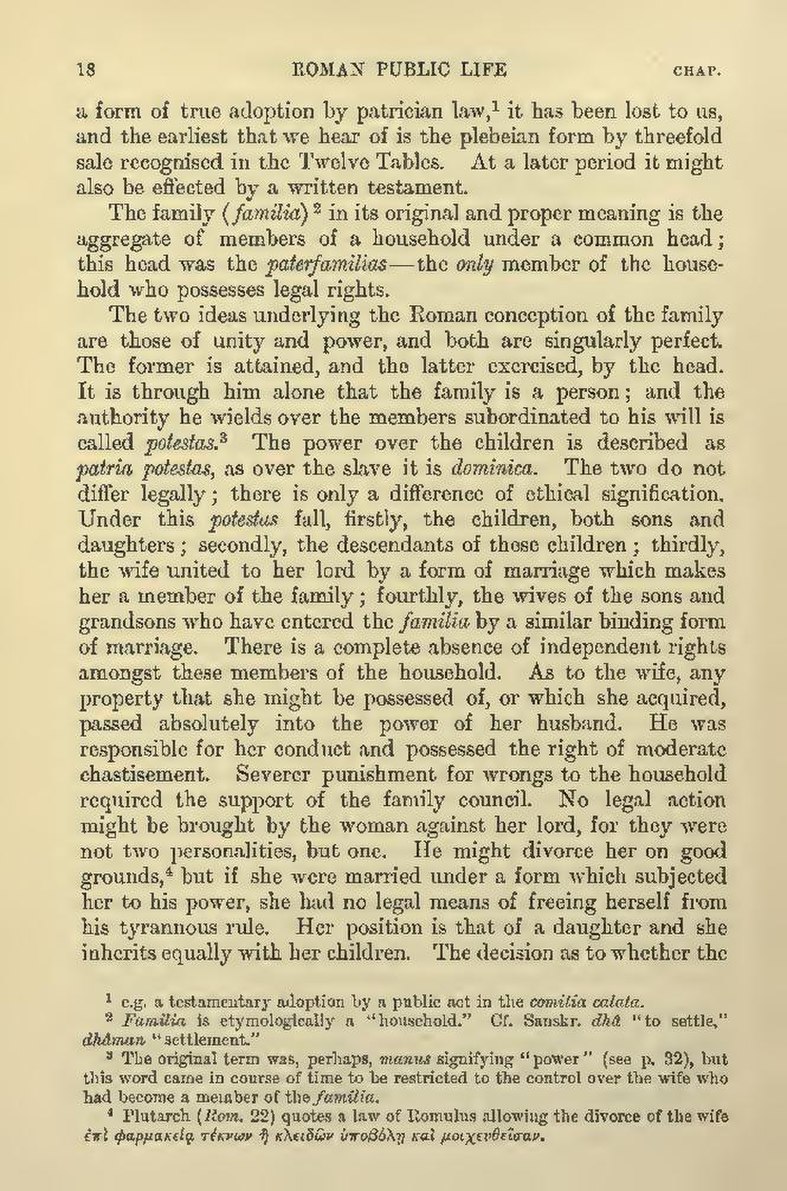a form of true adoption by patrician law,[1] it has been lost to us, and the earliest that we hear of is the plebeian form by threefold sale recognised in the Twelve Tables. At a later period it might also be effected by a written testament.
The family (familia)[2] in its original and proper meaning is the aggregate of members of a household under a common head; this head was the paterfamilias—the only member of the household who possesses legal rights.
The two ideas underlying the Roman conception of the family are those of unity and power, and both are singularly perfect. The former is attained, and the latter exercised, by the head. It is through him alone that the family is a person; and the authority he wields over the members subordinated to his will is called potestas.[3] The power over the children is described as patria potestas, as over the slave it is dominica. The two do not differ legally; there is only a difference of ethical signification. Under this potestas fall, firstly, the children, both sons and daughters; secondly, the descendants of these children; thirdly, the wife united to her lord by a form of marriage which makes her a member of the family; fourthly, the wives of the sons and grandsons who have entered the familia by a similar binding form of marriage. There is a complete absence of independent rights amongst these members of the household. As to the wife, any property that she might be possessed of, or which she acquired, passed absolutely into the power of her husband. He was responsible for her conduct and possessed the right of moderate chastisement. Severer punishment for wrongs to the household required the support of the family council. No legal action might be brought by the woman against her lord, for they were not two personalities, but one. He might divorce her on good grounds,[4] but if she were married under a form which subjected her to his power, she had no legal means of freeing herself from his tyrannous rule. Her position is that of a daughter and she inherits equally with her children. The decision as to whether the.]
- ↑ e.g. a testamentary adoption by a public act in the comitia calata.
- ↑ Familia is etymologically a "household." Cf. Sanskr. dhâ "to settle," dhâman "settlement."
- ↑ The original term was, perhaps, manus signifying "power" (see p. 32), but this word came in course of time to be restricted to the control over the wife who had become a member of the familia.
- ↑ Plutarch (Rom. 22) quotes a law of Romulus allowing the divorce of the wife [Greek: epi pharmakeia teknôn ê kleidôn hypobolê kai moicheutheisan
